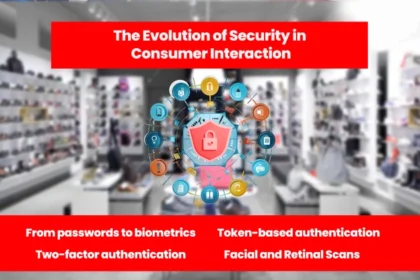Technology has always been one of the most important factors that determine the success of a company. The rise of new technologies and their adaptation to business processes have changed our lives forever. The continuous development of the Internet and its transformation into a new platform for communication and collaboration has brought about new opportunities for business leaders.
Moreover, the desire to keep up with the latest trends and use them in their work is not only a trend but also an obligation for C-level executives. They are responsible for ensuring that their companies are on top of all emerging trends, so they must be able to quickly adapt and apply new technologies to improve their business processes.
With this in mind, we’ve compiled a list of the most important tech trends for C-level executives to understand.
Data Analytics
The sheer amount of data being generated today makes data analytics an essential tool for business leaders. In the next five years, more than 180 zettabytes of data will be created and consumed across the world, according to Statista. Most of this data is unstructured, making data analytics an indispensable tool for CTOs looking to gain insight into how their organizations function on a daily basis.
The reason data analytics matters so much is that it allows business leaders to gain insight into their customers and target them with products and services that they want most.
Being a C-level executive, you can use data analytics to predict how customers might react to your new product line or how their behavior will change when you introduce a new feature into your app. You can also use it to help optimize your supply chain and figure out which suppliers are most effective and efficient at producing certain products.
According to the EY Tech Horizon 2022, roughly 53% of senior executives will prioritize investments on data and analytics during the next two years to reap the benefits of data analytics solutions.
Artificial Intelligence
Artificial Intelligence (AI) is a hot topic that C-level executives need to understand and adapt to in order to stay ahead of the curve. In fact, 94% of business leaders agreed that AI is crucial for success, according to the State of AI in the Enterprise by Deloitte, released in 2022.
The C-suite needs to understand AI because it has the potential to change the way we do business and even how we think about business.
For example, companies like Salesforce and Cisco are using AI in customer service roles by giving customers self-service options without ever needing to contact a human being. This kind of automation eliminates tedious tasks for customer service representatives, which ultimately makes them more effective at what they do: helping customers with issues and concerns.
Along with making customer service more efficient, AI can also improve other areas of your business by analyzing data from multiple sources on an ongoing basis so that you’re always armed with information about your company’s performance.
Moreover, according to a recent report by Mckinsey, 52% of surveyed individuals across organizations report that more than 5% of their digital budgets will go into AI in 2022.
If you’re one of the CEOs, CTOS, and other C-level executives who haven’t yet made the leap into the world of AI, these figures might convince you to invest in AI today and reap its benefits in years to come.
Digital Transformation
Digital transformation (DX) is not just a tech trend but a business imperative now. As technology becomes more complex and diverse, companies need to ensure that they adapt to these changes in order to remain competitive.
As organizations become more digital, the role of C-level executives is changing. Whereas once they might have been focused on purely strategic concerns like sales and marketing, now they must also lead DX efforts that are essential for survival in the modern business world.
In fact, 85% of CIOs reported being more involved in leading digital transformation initiatives than their business counterparts, as revealed by State of the CIO 2022.
Digital transformation is about transforming the business model by adopting new technologies and processes so that it can be more agile and flexible in responding to market demands. This requires organizations to take a different approach toward business operations. They have to invest in new technologies, develop new skill sets among employees, redesign processes, and change the mindset of employees towards working differently.
However, DX initiatives are not cost-effective as they require investments that will not pay back until some time later. But many organizations have realized its importance and are investing heavily in this front. As per EY-Parthenon 2022 DII, companies are making unparalleled investments in digital transformation this year, a rise of 65% from 2020.
With so many companies turning to digital tools to make their businesses more efficient and innovative, C-level executives also realize the importance of adapting to DX initiatives to support these changes.
But you need more than just taking DX initiatives and repeating its benefits to excel in your role as a leader and nurturer of business growth. You need to have strong strategic agility and analytical reasoning skills to do that.
These skills can be gained through an online MBA program that enables you to gain market awareness while still being on your job. Also, many of these programs don’t require you to go through the tedious process of taking the GMAT exam, which is great because it frees up more time for you to learn the key concepts of business acumen.
As a C-level executive aspiring to become a prominent business leader, you should opt for online MBA programs accredited with AACSB. You won’t even have to take a GMAT exam for some of them.
Just look for online MBA programs AACSB accredited, no GMAT required, and you should find what you need. These programs can help you gain market awareness while still fulfilling your professional commitments.
Cyber Security
Cybersecurity is a topic that’s getting more and more attention from C-level executives. In fact, this year’s State of the CIO survey found that 49% of CEOs agreed that cybersecurity protection is their leading business initiative which fuels IT investments in 2022.
This should come as no surprise to anyone who’s been following news about data breaches and hacks. Even if an organization doesn’t get directly affected by a breach, you can be sure that there will be some sort of negative impact on your brand or reputation if you don’t take cybersecurity seriously.
The growing threat landscape of cyber-attacks means that companies need to make sure they have strong security measures in place. In line with this, 66% of CIOs intend to increase cybersecurity investments in the coming year, according to a recent survey from Gartner.
Being a C-level executive, investing in cybersecurity means having a team or individual that understands the latest cybersecurity trends and can identify vulnerabilities before they are exploited. These people should also be responsible for training other employees to avoid being hacked and report any suspicious activity.
Additionally, you need an effective plan of action in case an attack does occur. This plan should include steps such as informing customers of potential data breaches and communicating with law enforcement agencies if necessary. It’s important that this plan is regularly reviewed so that it can be adapted accordingly based on changes in technology or industry standards.
Final Thoughts
C-level executives need to understand these tech trends to stay on top of the game. Whether you’re a CEO, CIO, CTO, or vice president, it’s important to know what’s going on in your industry and how to adapt your business practices accordingly. While technology is constantly changing and evolving, it’s important not to get left behind.










